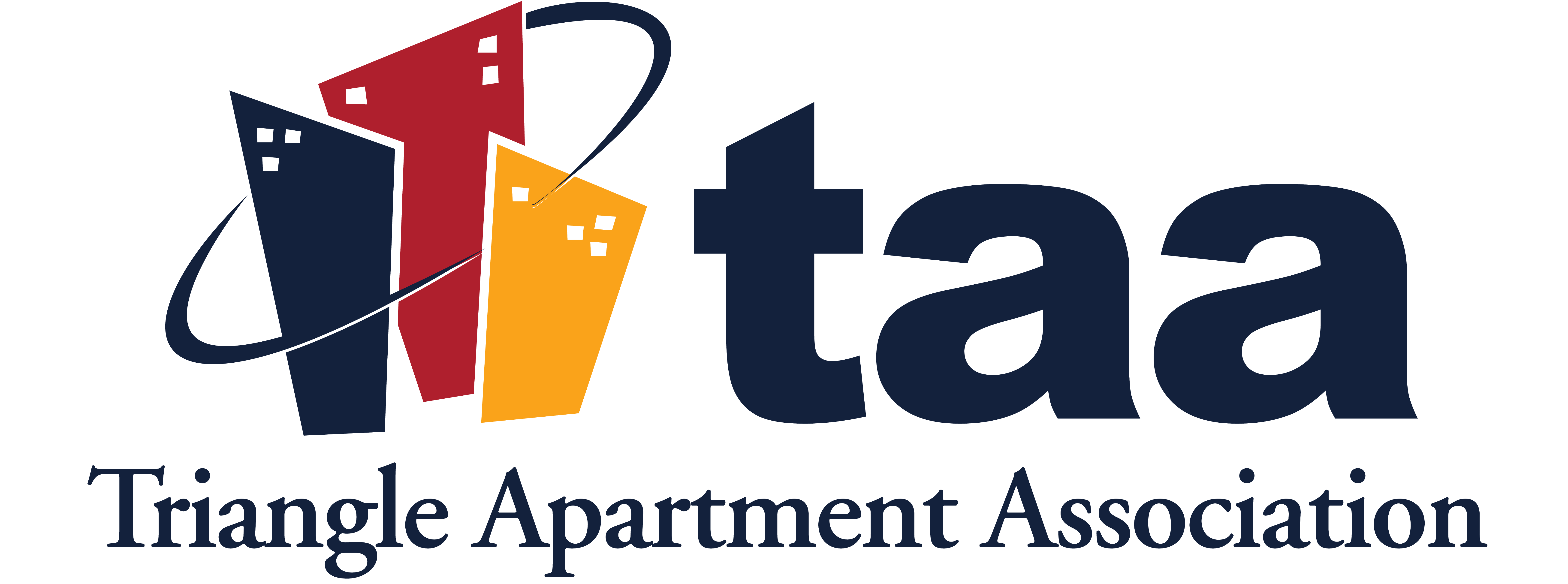Stay at Home Orders: What does that mean?
The following counties in our area have enacted a Stay-at-Home Order for all city residents to further help stop the spread of this virus.
North Carolina's Stay-at-Home Orders
(Issued March 27, 2020)
Local Stay-at-Home Orders
DURHAM County'S STAY-AT-HOME ORDERS
(Issued March 25, 2020)
Orange County's Stay-at-Home Orders
(Issued March 26, 2020)
Wake County's Stay-at-Home Orders
(Issued March 26, 2020)
So what does that mean for you?
Sources: National Apartment Association, News & Observer, and TAA
Can I still get groceries, go jogging, get my oil changed?
Yes, yes, and yes. A stay at home order does not mean you are confined to your home. It means you must stay at home unless you are participating in an "essential activity". Essential activities are defined into the following categories: Health and Safety; Necessary Supplies and Services; Outdoor Activity; Permitted Business Functions; and To Take Care of Others.
For industry professionals, how do I know if what I do is an essential service or permitted business function?
Guidance varies per order. Start with North Carolina's guidance. If your county or city has imposed additional restrictions or prohibitions to a greater degree than NC's Executive Order, you must follow the more strict guidelines. If you are not clear as to whether your business qualifies as an essential business, you are encouraged to reach out and take the following steps:
North Carolina:
- For Owner/Operators: Section 5: "Essential Infrastructure Operations. Includes, but is not limited to: ...building and grounds management and maintenance including landscaping;..."
- For Suppliers: Several sections may be relevant based on your line of work.
- Section 15: "Critical Trades. Building and construction tradesmen and tradeswomen, and other trades, including but not limited to, plumbers, electricians, exterminators, cleaning and janitorial staff for commercial and governmental properties, security staff, operating engineers, HVAC, painting, cleaning services, moving and relocation services, landscaping and other service providers who provide services that are necessary to maintaining the safety, sanitation, and essential operation of residents and COVID-19 Essential Businesses and Operations. This includes organizations that represent employees."
- Section 21: "Supplies for COVID-19 Essential Businesses and Operations. Businesses that sell, manufacture, support, or supply other COVID-19 Essential Businesses and Operations with the service or materials necessary to operate including computers, audio and video electronics, household appliances; payroll processing and related services; IT and telecommunication equipment; elections personnel and election-related equipment supplies; hardware, paint, flat glass, electrical, plumbing and heating material; sanitary equipment; personal hygiene products; food, food additives, ingredients and components; medical and orthopedic equipment; optics and photography equipment; and diagnostics, food and beverages, soaps and detergent."
Durham Co:
- Owner/Operators: While employees in the multifamily industry are considered essential in Durham, the City is encouraging all businesses to observe social distancing and engage in only critical activities such as emergency repairs.
- Suppliers: Several sections may be relevant based on your line of work.
- Section E-2-i: Critical trades. Building and Construction Trades, and other related trades, including but not limited to, plumbers, electricians, exterminators, cleaning and janitorial staff for commercial and governmental properties, security staff, operating engineers, HVAC, painting, moving and relocation services, and other service providers who provide services that are necessary to maintaining the safety, sanitation, and essential operation of residences, Essential Activities, and Essential Businesses and Operations. Any of the aforesaid Critical Trades services provided in-person shall observe Social Distancing Requirements.
- Section E-2-n: "Services and supplies for Essential Businesses, Essential Government
Services, or Minimal Basic Operations. Businesses that sell, manufacture, or supply support or materials needed to enable Essential Businesses, Essential Government Services, or Minimum Basic Operations, as such terms are defined herein.
Orange Co:
- Owner/Operators:
- Guidance is less clear for Office Staff. For clarity for your business, call 919-245-6111. Available from 8:30 a.m. to 5:00 p.m. Monday through Friday. Spanish language and other languages are available.
- Guidance is clear for Maintenance: Section E-2-i: "Critical trades. Building and Construction Trades, and other related trades, including but not limited to, plumbers, electricians, exterminators, cleaning and janitorial staff for commercial and governmental properties, security staff, operating engineers, HVAC, painting, moving and relocation services, and other service providers who provide services that are necessary to maintaining the safety, sanitation, and essential operation of residences, Essential Activities, and Essential Businesses and Operations."
- Suppliers:
- Section E-2-i: "Critical trades. Building and Construction Trades, and other related trades, including but not limited to, plumbers, electricians, exterminators, cleaning and
janitorial staff for commercial and governmental properties, security staff, operating engineers, HVAC, painting, moving and relocation services, and other service providers who provide services that are necessary to maintaining the safety, sanitation, and essential operation of residences, Essential Activities, and Essential Businesses and Operations." - Section E-2-n: "Services and supplies for Essential Businesses, Essential Government Services or Minimal Basic Operations. Businesses that sell, manufacture, or supply support or materials needed to enable Essential Businesses, Essential Government Services, or Minimum Basic Operations, as such terms are defined
herein. "
- Section E-2-i: "Critical trades. Building and Construction Trades, and other related trades, including but not limited to, plumbers, electricians, exterminators, cleaning and
Wake Co:
- Guidance is clear:
- For Owner/Operators: Section 10-x: "Residential facilities which includes... apartment complexes, shared rental units..."
- For Suppliers: Several sections may be relevant based on your line of work, but minimally section 10-t: Businesses that supply other exempt business with the support or supplies necessary to operate;"
- For Owner/Operators: Section 10-x: "Residential facilities which includes... apartment complexes, shared rental units..."
Essential Work Provider Templates
As Counties across the state enact “Stay-at-Home” orders, we are seeing that some are listing apartment operations as essential services, while some are more ambiguous. While work is being done to clarify the ambiguity, in the event that customers or government authorities inquire about your operational status, the Apartment Association of North Carolina has provided "Essential Work Templates" for your use.
You can tailor and provide any of these examples to staff when traveling to perform job responsibilities and at property sites. This document can be presented to government authorities as a reference to their essential work status if appropriate.
Precautions during a Stay-at-Home Order
-
Limit onsite employees, maintain limited staff to ensure continuity of basic operations (service request management, rent collection and payroll, etc.).
-
Where possible, limit in-person transactions between staff and residents. Consider implementing digital payment and maintenance requests or offer secure drop boxes. Note: Please review applicable state laws, and your lease agreement, which may prohibit landlords from mandating that residents pay rent online.
-
Suspend all non-essential maintenance and repairs. Service requests should be categorized between essential (HVAC, hot water, plumbing, etc.) and non-urgent (upgrades, cosmetic repairs, etc.).
-
Share staffing updates with residents and ensure emergency contact information is available. When possible, use multiple communication platforms such as email, community bulletin boards and notices to individual units.
Contact vendors to determine availability for emergency maintenance needs. Ensure alternative arrangements are available.
-
Utilize TAA's Member Directory if you are in need of additional vendor partners.
-
Continue move-out walk-through inspections when requested by residents, per legal requirements. However, follow appropriate social distancing protocols. Ensure the residents desire inspections in the current environment and, if the request is withdrawn, get it in writing.
-
Consider providing virtual and low-contact showings to prospective residents. These could include virtual tours or allowing a prospect to enter and tour a unit on their own. Be sure to disinfect high-touch surfaces between showings (including door knobs, light switches, etc.).
Visit NAA’s Guidance for Dealing with the Coronavirus for industry best practices and a wealth of information for industry professionals as you work to operate your business and navigate this new landscape.

